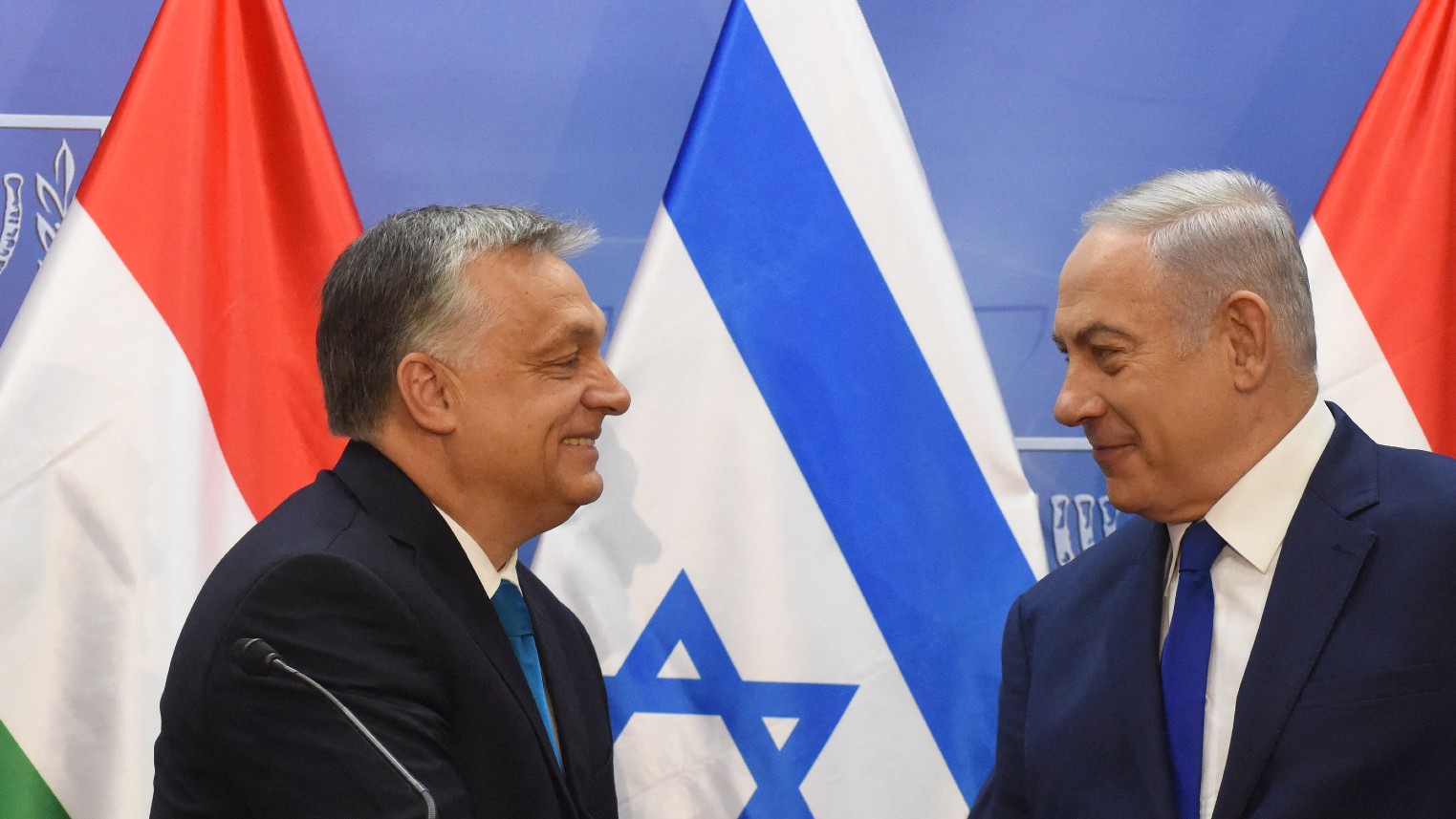Hungary expected to withdraw from ICC during Netanyahu visit

Hungary is reportedly planning to withdraw from the International Criminal Court (ICC) during a controversial visit by Israeli Prime Minister Benjamin Netanyahu this week.
The plan to withdraw from the court, which has issued an arrest warrant against Netanyahu over charges of war crimes in Gaza, has been reported by the Israeli and Hungarian media.
Hungary was among the first countries that ratified the Rome Statute, the treaty that established the ICC in 2002. If it withdraws, it will become the first EU country to pull out of the treaty.
Under article 127 of the Rome Statute, Hungary would need to send a written notification to the United Nations Secretary General to leave the treaty, then the withdrawal would take effect one year after the receipt of the notice.
All 125 states parties to the statute, including all EU countries, are under a legal obligation to arrest and surrender Netanyahu to the Hague-based court.
New MEE newsletter: Jerusalem Dispatch
Sign up to get the latest insights and analysis on Israel-Palestine, alongside Turkey Unpacked and other MEE newsletters
"As a member of the ICC, Hungary must arrest Netanyahu when he is in Hungary,” Margaret Satterthwaite, UN special rapporteur on the independence of judges and lawyers, told Middle East Eye.
Netanyahu’s four-day visit, which begins on Wednesday, came after an invitation in November by his Hungarian counterpart and ally Viktor Orban, a right-wing nationalist who declared that he would not implement the ICC arrest warrant.
It marks Netanyahu’s first trip to an ICC member state since the court issued arrest warrants for him and his former defence minister, Yoav Gallant, on 21 November.
It is the first instance in the court's 22-year history it has issued arrest warrants for western-allied senior officials.
Under Netanyahu's government, Israel has faced accusations of war crimes, genocide, and crimes against humanity.
Israel's war on Gaza has killed more than 50,000 Palestinians, forcibly displaced most of the 2.4 million popoulation, and made the enclave largely uninhabitable.
ICC reaction
On Wednesday, the ICC’s spokesperson Fadi El-Abdallah denounced Hungary’s non-compliance with the court’s decision.
“This is not only a legal obligation to the court under the Rome Statute, it is also a responsibility towards other states parties,” he told MEE.
“When states have concerns in cooperating with the court, they may consult the court in a timely and efficient manner,” El-Abdallah said. “However, it is not for states to unilaterally determine the soundness of the court’s legal decisions.”
According to article 119 of the Rome Statute, “any dispute concerning the judicial functions of the court shall be settled by the decision of the court”.
The arrest warrant is part of a war crimes investigation on the situation in Palestine, launched in 2021 by former ICC prosecutor Fatou Bensouda.
'It is not for States to unilaterally determine the soundness of the Court’s legal decisions'
- Fadi El-Abdallah, ICC spokesperson
Israel is not a member of the ICC, but the State of Palestine was granted membership in 2015. Accordingly, the court can investigate Israeli individuals for crimes committed in occupied Palestine, which includes the Gaza Strip, the West Bank and East Jerusalem.
An ICC trial cannot commence in absentia.
However, the court does not have enforcement powers. It relies on the cooperation of member states to arrest and surrender suspects.
“International justice only works if states live up to their commitments,” said Satterthwaite, who is the UN’s top expert on judicial independence.
“Central among the commitments embedded in the Rome Statute is the promise to cooperate with the court by carrying out arrest warrants.”
Satterthwaite cited article 87 of the Rome Statute, saying that failing to arrest Netanyahu would effectively amount to preventing the court from exercising its functions.
“Impunity must end, and justice must be brought to bear, regardless of the position or power of the perpetrator," she said.
If states do not comply with the court’s request for arrest, their conduct can be referred to the Assembly of States Parties, the governing body of the ICC, as was the case with Mongolia when it failed to arrest Russian President Vladimir Putin, who is wanted by the ICC, in September 2024 claiming he enjoys immunity.
Then the assembly can take measures to induce cooperation.
Netanyahu has appeared to limit his international travel since the ICC’s arrest warrants were issued five months ago.
His only trip so far has been to Washington in February upon an invitation by US President Donald Trump.
The US is not a member of the ICC, and Trump sanctioned the court’s chief prosecutor Karim Khan during Netanyahu’s visit in response to his investigation into Israel’s conduct in Gaza.
Ahead of Wednesday's trip, rights groups Amnesty International and Human Rights Watch warned that Hungary's defiance of the court's order would embolden Netanyahu's government to continue breaching international law in Gaza without fear of accountability.
In a letter on Tuesday, Amnesty chief Agnes Callamard urged the Assembly of States Parties to take measures to induce member states to cooperate with the court and prevent non-compliance.
Meanwhile, the Hind Rajab Foundation, a Brussels-based advocacy group focused on international justice, said on Tuesday that it was due to launch “a coordinated legal and political campaign” against Netanyahu’s visit to urge his arrest.
middleeasteye.net